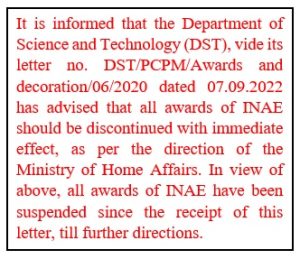Recipients of Professor Jai Krishna Memorial Award
2020

Dr. V Ramaswamy
Dr V Ramaswamy, Professor, Department of Metallurgical Engineering, PSG College of Technology, Coimbatore has made outstanding contributions in the field of Ferrous Metallurgy. He developed many new steel products such as dual phase steels, Duplex stainless steels, Heat resistant steel for Indian Railways etc. He had also helped the strategic sectors by developing 9Cr-1 Mo steels for Atomic Energy and Si-Cr-Ni steels for defence applications. As ED and CE of Salem Steel Plant, he commissioned the coin blanking line. He was responsible for completing a Rs. 600 Crore hot rolling Steckel mill in 1995 without any cost and time overrun. Dr. Ramaswamy was invited to be an expert member in the DMRL project on the development of a high strength and with high weldability characteristics for the Indian Navy.
2019
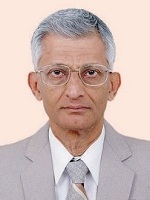
Prof. KT Jacob
Prof KT Jacob was educated at the Indian Institute of Science, Bangalore and Imperial College, London. From 1970 to 1983, he held several academic positions at the University of Toronto, Canada, culminating as Associate Professor. Back in India, he was Chairman of both the Department of Metallurgy and the Materials Research Centre at the Indian Institute of Science. After retirement, he continued at IISc as Honorary Professor and INAE Distinguished Professor. He is currently NASI Senior Scientist – Platinum Jubilee Fellow. Prof Jacob’s research interests are in thermodynamics of materials, phase diagrams, high-temperature corrosion, extractive metallurgy, solid-state sensors and solid -oxide fuel cells.
2018
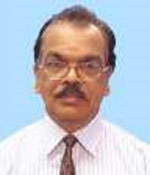
Dr. T.K. Alex
Dr. T.K. Alex, former Director, Indian Space Research Organisation (ISRO) Satellite Centre and former Member Space Commission contributed significantly to the growth of the Indian Space Programme. He joined ISRO in 1971 and was a member of Aryabhata satellite launch team. He developed various Sensors and optical payloads used in satellites. The most notable responsibilities held by him include Director, ISRO Satellite Centre; Project Director of experiments conducted during Indo-Soviet Manned Mission and Founder Director, ISRO’s Laboratory for Electro-Optics Systems. Dr Alex was conferred with Padma Shri Award by President of India in 2007.
2017
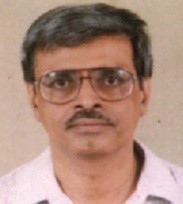
Prof. Kamanio Chattopadhyay
Prof. Kamanio Chattopadhyay, INAE Distinguished Professor, Department of Materials Engineering, Indian Institute of Science, Bangalore, has combined a deep understanding of the basics and a spirit of exploration using cutting edge tools like of electron microscopy and he continues to make discoveries enriching the field of Materials Engineering. His pioneering work on the discovery of Decagonal Quasicrystal and ordering phenomena in eighties have catalysed the growth of the field of Quasicrystal and represents a major Indian contribution in the international arena. He has significantly contributed to our understanding of the materials behaviour at nano-meter size range much before the term nanomaterials became a house hold name. His work on milling induced synthesis of new materials that spans from magnetic and photovoltaic materials to coatings and waste disposals has opened up new technological possibilities
2016
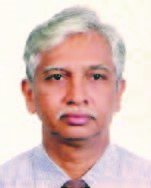
Dr. V. Adimurthy
Dr. V. Adimurthy, who is presently ISRO Honorary Distinguished Professor, is the Chairman of the Mars Mission Study Team whose Report of July 2011 provided the integrated conceptual design for India’s successful Mars Orbiter Mission. Dr. Adimurthy received his Ph.D. degree in 1973 for his work on hypersonic low-density flows over reentry bodies from IIT, Kanpur, and joined the Indian Space Program immediately thereafter. During more than four decades of his professional career, Dr. Adimurthy made significant individual contributions to engineering sciences in the areas of aerodynamics, flight dynamics, trajectory optimization, space dynamics, space debris studies, lunar and interplanetary mission design, and multi-disciplinary design optimization. All the unique trajectory designs of ISRO launch missions are carried out using the Trajectory Optimization Software PYOPT developed by Dr Adimurthy. He has also spearheaded ISRO developments on Space Debris Mitigation Technologies, Hypersonic Aerodynamics and MDO Research; and published more than 150 papers in these broad areas.
2015
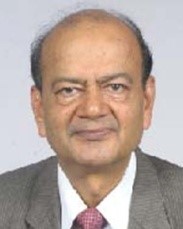
Dr. LK Singhal
Dr. LK Singhal graduated in Metallurgical Engineering from BHU and obtained his Doctorate from the University of Oxford. His contributions encompass structure-property correlation, process modeling, design & engineering and product development. His fundamental research work was on correlation of micro-structure with yield strength of age hardened materials and for elucidation of mechanisms of formation of gamma prime, chromium carbide and sigma phases in stainless steels.
2014
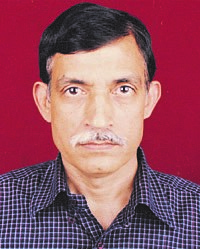
Dr. Avinash Chander
Dr. Avinash Chander, Secretary Department of Defence R&D & Scientific Advisor to Raksha Mantri joined DRDO in August 1972. Under his leadership, DRDO has carried out extensive Research and indigenous development of critical defence technologies, denied under MTCR. His pioneering research in the navigation and guidance systems with Innovative Energy Management Guidance Scheme has enabled utilization of Solid Propulsion, providing main thrust for Long Range Missile System.
2013

Prof. ML Munjal
Prof. ML Munjal, born on April 4, 1945 obtained his B.Sc. Engg. (Hons.) Degree from Punjab University in 1966. He then obtained M.E. and PhD Degrees from Indian Institute of Science, Bangalore in 1968 and 1971 respectively. He joined the Department of Mechanical Engineering, Indian Institute of Science, Bangalore as a Faculty member in 1968 and has served as Chairman of the Division of Mechanical Sciences. After his superannuation in 2010, he was INAE Distinguished Professor, during 2010-2013, at Indian Institute of Science and continues his work at the Institute as Honorary Professor.
2012
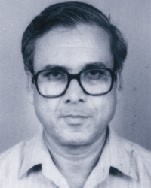
Prof. Amitabha Ghosh
Prof. Amitabha Ghosh, born on Dec 3, 1941 obtained his B.E., M.E and Ph.D Degrees in Mechanical Engineering from Calcutta University in 1962, 1964 and 1969 respectively. He was formerly Professor, Department of Mechanical Engineering, Indian Institute of Technology, Kanpur and formerly Director, Indian Institute of Technology, Kharagpur. He is presently INSA Senior Scientist at Bengal Engineering & Science University, Shibpur, Howarh.
2011

Dr. Dipankar Banerjee
Dr. Dipankar Banerjee born on February 15, 1952, obtained his B. Tech degree in Metallurgy from Indian Institute of Technology, Madras in 1974 and PhD degree in Metallurgy from Indian Institute of Science, Bangalore in 1979. He is internationally recognised for his contribution towards the understanding of structure-property relationship in titanium alloys using advanced techniques of electron microscopy. His work on the intermetallics in titanium based system led to the discovery and development of a new generation of alloys, some of which have been internationally patented. He has about 100 research publications to his credit.
As the Director of Defence Metallurgical Research Laboratory (DMRL) (1996¬-2003), Dr. Banerjee provided leadership for many critical defence related materials programs including special naval steels for the Indian Navy’s aircraft carriers, investment casting processes for single crystal, directionally solidified and equiaxed Nickel base alloys and the development of titanium alloys products for aeroengines, as well as the development of rare earth magnets for ISRO’s satellite systems. Each of these products has been fully certified for use and is currently in various stages of production and application. India’s first aircraft carrier is being built from steel whose production
2010
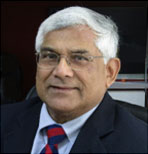
Dr. Sanak Mishra
Dr. Sanak Mishra, born on December 18, 1945, obtained his B.Sc. Honours degree in Physics from Ravenshaw College and Bachelor of Engineering degree in Metallurgy from the Indian Institute of Science, Bangalore in 1968. He obtained the Master of Science and PhD degrees in Metallurgical Engineering from the University of Illinois, Urbana-Champaign in 1970 and 1973 respectively. Since January 2006, Dr. Mishra is Chief Executive Officer (CEO) of the India Greenfield Projects, ArcelorMittal. He has been entrusted with the task of setting up state-of-the-art steel plants, as a part of global strategy. He also led the establishment of the ArcelorMittal Design & Engineering Centre (AMDEC) in Kolkata. A visionary leader of Corporate India, Dr. Sanak Mishra is a Metallurgist of international repute, and a leading steel technologist.
Prior to joining Mittal Steel, he was Member of the Board of Directors of the Steel Authority of India Limited (SAIL), and concurrently served as the Managing Director (2002-05) of its Rourkela Steel Plant. Under his dynamic leadership, this loss-making company achieved a dramatic turnaround in both physical and financial terms, and in industrial relations. One of his highly commended achievements was the total reconstruction of the plant’s largest blast furnace in a record time. His novel approach to sustainable change, driven by a holistic movement named “SAMSKAR”, has been widely acknowledged in management literature. It demonstrated how the mindset of more than 25,000 people can be changed and then harmonized into purposeful action. The unique “Mass Contact Exercise” conducted by him, has no precedence in the history of corporate communication.
2009

Dr. VK Saraswat
Dr. VK Saraswat, born on May 25, 1949 graduated in Mechanical Engineering from Jiwaji University, Gwalior. He obtained his Master of Engineering in Mechanical Engineering from Indian Institute of Science, Bangalore and Doctorate in Propulsion Engineering from Osmania University, Hyderabad. He has specialized in Missile Technologies, Rocket Propulsion and Technology Management. He is Scientific Adviser to Raksha Mantri, Secretary, Department of Defence R&D, Director General, DRDO and Director General, ADA.
Dr VK Saraswat has contributed immensely as technology and project leader to the development of Missile Systems for the last 36 years. During this period he had worked towards the development of Liquid Propulsion Technologies and has developed a 3 Ton Liquid Propulsion Engine for Prithvi Missile System. This Engine was used as `work horse’ for the 3 versions of Prithvi Missile. These engines have been productionised at HAL, Bangalore and also in the private sector by M/s. Godrej Boyce, Mumbai & M/s. MTAR, Hyderabad.
2008

Dr. Baldev Raj *
Dr. Baldev Raj, born on April 9, 1947 in Jammu, obtained his B.E. (Hons.) degree in Metallurgy from Ravishankar University, Raipur in 1969 and Ph.D. degree in engineering from Indian Institute of Science, Bangalore in 1990. Dr. Baldev Raj is presently Director Indira Gandhi Centre for Atomic Research (IGCAR), Kalpakkam. He has made outstanding and sustained contributions in the fields of materials characterization, testing & evaluation using acoustic and electromagnetic techniques. His work in nuclear reactor and reprocessing technology is widely acclaimed and recognized internationally. He has played a pivotal role in development of several innovative and indigenous technologies for fabrication of critical reactor components and systems. He has developed innovative physical and chemical sensors for diverse applications. As Director of IGCAR, Kalpakkam, he presently steers the Indian Fast Reactor Programme, which is widely acclaimed nationally and internationally. Under his leadership, IGCAR has achieved many important international benchmarks, such as successful operation of FBTR and the development of the state-of-art reprocessing facilities for the carbide fuel. The construction of a 500 MW Prototype Fast Breeder Reactor (PFBR) is in an advanced stage of realization. He has contributed immensely in terms of R&D and managerial activities to meet the challenges of this demanding technology.
2007

Prof. D.V. Singh
Prof. D.V. Singh, born on December 11, 1934 in Lucknow, graduated in Science from the University of Allahabad in 1953 and later obtained the B.E. degrees in Mechanical Engineering and Civil Engineering in 1956 and 1957 respectively from the University of Roorkee. He obtained his M.S. and Ph.D. degrees in 1962 and 1964 from the University of Wisconsin, USA.
Prof. Singh joined the University of Roorkee in 1958 as a Lecturer in Mechanical Engineering and became Professor in 1967. He served the University as the Head of Department of Mechanical & Industrial Engineering, Dean Academic, and Dean Research and Industrial Liaison. It was during this period that his academic excellence led the Mechanical & Industrial Engineering Department to be recognized by UGC as the Centre of Excellence. His technical expertise and administrative acumen led him to become the Director of the Central Road Research Institute of CSIR in 1990. After completing his initiative-driven tenure, during which the Institute charted a new road map both at the national and international levels, Prof. Singh joined as the Vice Chairman, All India Council of Technical Education (AICTE) in 1996. In AICTE, he initiated several new programmes and the technical education in the country took a more purposeful direction. Prof. Singh was appointed as the Vice Chancellor of the University of Roorkee in the year 2000. He was the first Director of IIT Roorkee.
2006
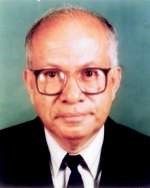
Prof. Srinivasa Ranganathan
Prof. Srinivasa Ranganathan was born on January 10, 1941 in Cuddalore. He graduated with first rank in B.Sc. (Hons.) in Chemistry from the University of Madras in 1960 and also secured first rank in B.E. (Metallurgy), from the Indian Institute of Science in 1962. He did his doctoral thesis in Cambridge University, England during 1962-1965. After a brief stint as a Research Metallurgist at the Lawrence Radiation Laboratory, Berkeley, USA during 1965-67, he joined the faculty of the Department of Metallurgy at the Banaras Hindu University in 1967 and rose to become a Professor in 1972. In 1981 he moved to the Indian Institute of Science as a Professor of Physical Metallurgy. He served as Chairman of the Department of Metallurgy from 1981 to 1988 and as Chairman of the Division of Mechanical Sciences at the Institute from 1994 to 1999. Currently he is Honorary Professor at the Indian Institute of Science and holds the Senior Homi Bhabha Fellowship. He is also a Visiting Professor at the National Institute of Advanced Studies, Bangalore and Jawaharlal Nehru Centre for Advanced Scientific Research, Bangalore.
Prof. Ranganathan has made outstanding contributions to several areas of Physical Metallurgy. These include interfaces, rapidly quenched materials, quasicrystals and nanostructured materials. He has coauthored a book on “New Geometries for New Materials” published by the Cambridge University Press, UK. Though his work has been rooted in basic research, he has had fruitful interactions with R & D institutions in the Strategic Sector including the Bhabha Atomic Research Centre, the Indira Gandhi Centre for Atomic Research, the Defence Metallurgical Laboratory, the Vikram Sarabhai Space Centre as well as the National Aerospace Laboratories. Current interactions are with Tata Steel and Posco-India. In addition he has had successful collaborations with overseas industries such as Alusuisse (Switzerland), Hydro-Norsk (Norway) and General Motors and Boeing Company (USA). He is developing a programme on the societal implications of nanotechnology in the context of developing nations with emphasis on education. His research contributions are reflected in over 250 publications, including 25 edited books and proceedings. He has served on the editorial boards of ten journals including Acta Materialia, Materials Characterization and Materials Transactions.
2004

Prof. Ajoy K. Ghose
Prof. Ajoy K. Ghose, born on 13th April 1934, had a distinguished academic record at Patna University and at the Indian School of Mines, Dhanbad, graduating in 1956. After a short stint of practical experience in coal industry, he proceeded to the United Kingdom in 1957 under Government of India Overseas Scholarship Scheme and worked as a Management Trainee with the National Coal Board up to 1959. After serving as a Senior Lecturer in coal mining and mining machinery at Indian School of Mines, he joined the Central Mining Research Station as Senior Scientific Officer Grade I in 1960 where he set up Rock Mechanics and Hydraulic Stowing laboratories and undertook pioneering research work on coal mine ground control and roof bolting. He was appointed in 1962 as a Professor (Senior Scale) at Regional Engineering College, Srinagar at the early age of 28 and was entrusted with the task of setting up a new mining engineering programme. In 1966 he rejoined Indian School of Mines as Professor of Mining Engineering where he established a strong school of research and teaching in geo-mechanics and rock excavation engineering and set up the first Center of Rock Excavation Engineering in India. He took over the Directorship of Indian School of Mines in 1991 and retired in 1994. In between, he was an Exchange Scientist at the University of Ostrava in 1971, a Visiting Professor under Commonwealth Fellowship Programame at the University of Newcastle¬upon-Tyne in 1974 and also a Visiting Faculty at the University of Nottingham and the Academy of Mining and Metallurgy, Cracow.




